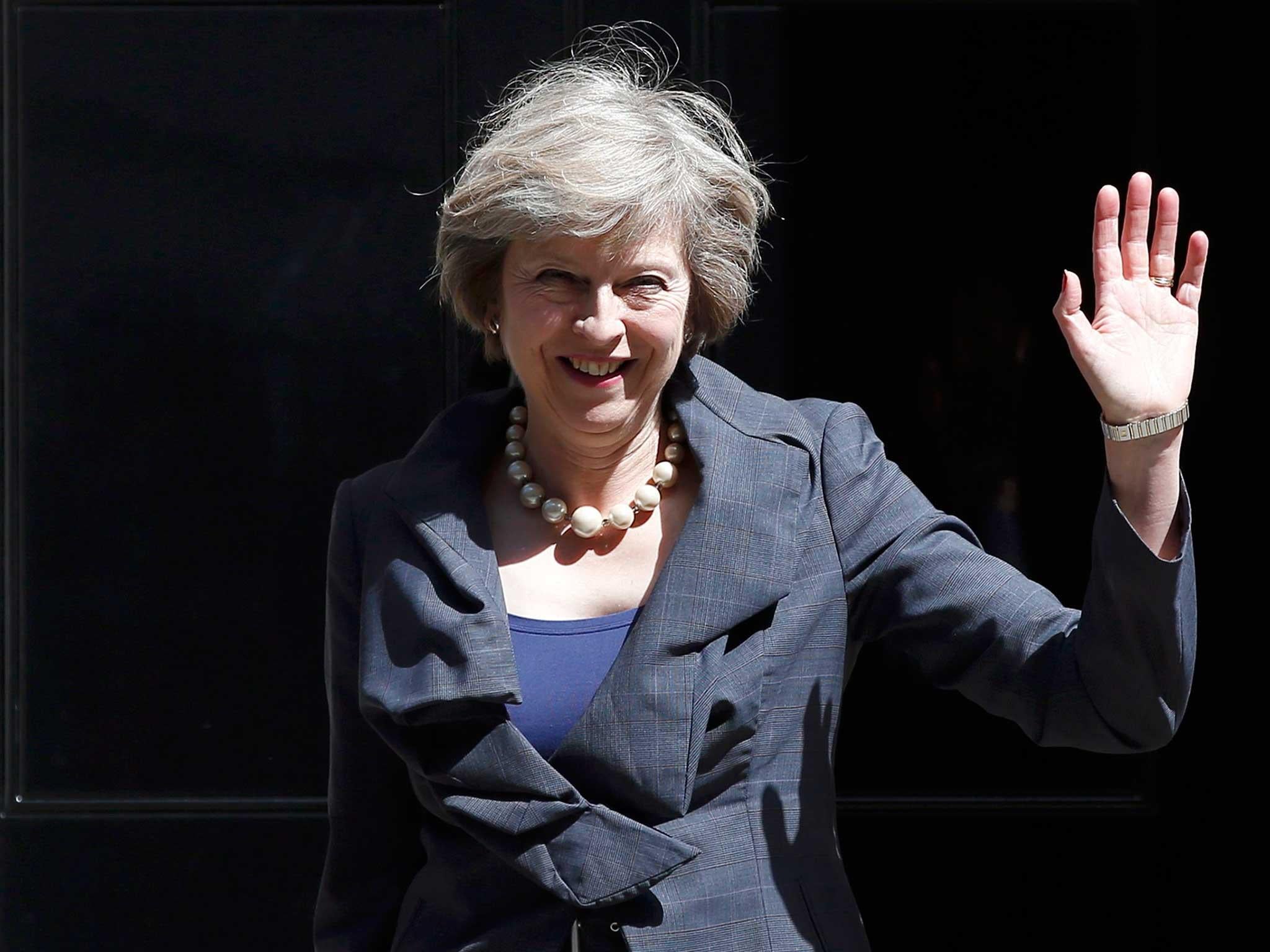The Independent's journalism is supported by our readers. When you purchase through links on our site, we may earn commission.
For the first time in Britain, we have a Prime Minister who intends to make us poorer
There is no easy way round the hard choice facing the Prime Minister, her Government and her country – access to the single market


Your support helps us to tell the story
From reproductive rights to climate change to Big Tech, The Independent is on the ground when the story is developing. Whether it's investigating the financials of Elon Musk's pro-Trump PAC or producing our latest documentary, 'The A Word', which shines a light on the American women fighting for reproductive rights, we know how important it is to parse out the facts from the messaging.
At such a critical moment in US history, we need reporters on the ground. Your donation allows us to keep sending journalists to speak to both sides of the story.
The Independent is trusted by Americans across the entire political spectrum. And unlike many other quality news outlets, we choose not to lock Americans out of our reporting and analysis with paywalls. We believe quality journalism should be available to everyone, paid for by those who can afford it.
Your support makes all the difference.Ne, nej, nee, no, ei, non, nein, ochi, nem, le, nie, nao, nu, nej. That is “no” in the official languages of the European Union, except Irish, which doesn’t have words for “yes” and “no”. Never say this column doesn’t do original research. It is what David Davis, Secretary of State for Exiting the EU, is going to hear a lot over the next three years.
The negotiations will be hard. The other countries of the EU are not going to allow Britain to exclude itself from the free movement of EU workers while keeping free access to the single market. Something will have to give.
This will split the country, but on slightly different lines from the 52-48 per cent division in the referendum. The Labour Party is already mobilising the “48 per cent” behind the twin demands of keeping Britain in the single market and a second referendum.
By the Labour Party I do not mean Jeremy Corbyn. He demanded that the Government, then still led by David Cameron, triggered Article 50 – the formal two-year process for leaving the EU – on the morning after the referendum.
But most of the party, being rather more viscerally defensive of Britain’s EU membership, has gravitated to fighting a rearguard action. Delay Article 50. Keep us in the single market. Demand a second referendum.
Those are the positions taken by Owen Smith and Angela Eagle, Corbyn’s two challengers for the leadership. But also by Chuka Umunna and Alastair Campbell, organising the campaign to hold the Leave campaign to account for what they regard as the impossible promises it made during the referendum.
It is not just Labour, though. May’s own Government is also divided. Two of her most senior cabinet ministers, Philip Hammond and Jeremy Hunt, say that staying in the single market is more important than controlling immigration. Hammond, three days after the referendum, said: “I believe that it is essential that we protect our access to the single European market.” He was Foreign Secretary at the time. Now that he is Chancellor his words become even more significant: “If we lose that, I fear we will find ourselves sliding gently down the league table getting relatively poorer and that is not an outcome I want to see for this country.”
Hunt was even more explicit, in those heady days when he was “seriously considering” running as a candidate for the Tory leadership. “The first part of the plan must be clarity that we will remain in the single market,” he said. “Before setting the clock ticking [on Article 50], we need to negotiate a deal and put it to the British people, either in a referendum or through the Conservative manifesto at a fresh general election.”
It will not be Hammond or Hunt who negotiate the detail of the Brexit deal, but this is such an important question that the whole Cabinet will take collective responsibility for it. May is said to want to “return to Cabinet government” – they all say that, and it mightily impresses people who think such a mythical beast ever existed. But there is no easy way round the hard choice facing the Prime Minister, her Government and her country.
May put the Leavers – Davis, Liam Fox and Boris Johnson – in charge of the negotiations so that they take responsibility for them. But this was not a way of dropping them in it, letting them take the blame while she sailed serenely on in the wreckage. She needs the negotiations to succeed as much as they do, because her Government was formed to carry out the people’s instruction in the referendum.
There may be poetic justice in seeing Davis, Fox and Johnson’s airy certainties meeting the reality of complex trade negotiations. They have got their country back, and it is the country that was used to being told “no”, mainly in French, by General de Gaulle and the rest of our continental neighbours.
But it is May’s country too. And she has made it clear that if there is a choice between controlling immigration and free trade, she would choose a reduction in immigration. For the first time in Britain, we have a Prime Minister who intends to make us poorer. She thinks that is what the people voted for in the referendum. Her place in history depends on whether she is right or not.
Join our commenting forum
Join thought-provoking conversations, follow other Independent readers and see their replies
Comments